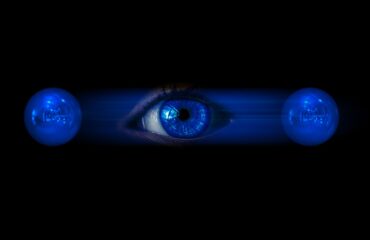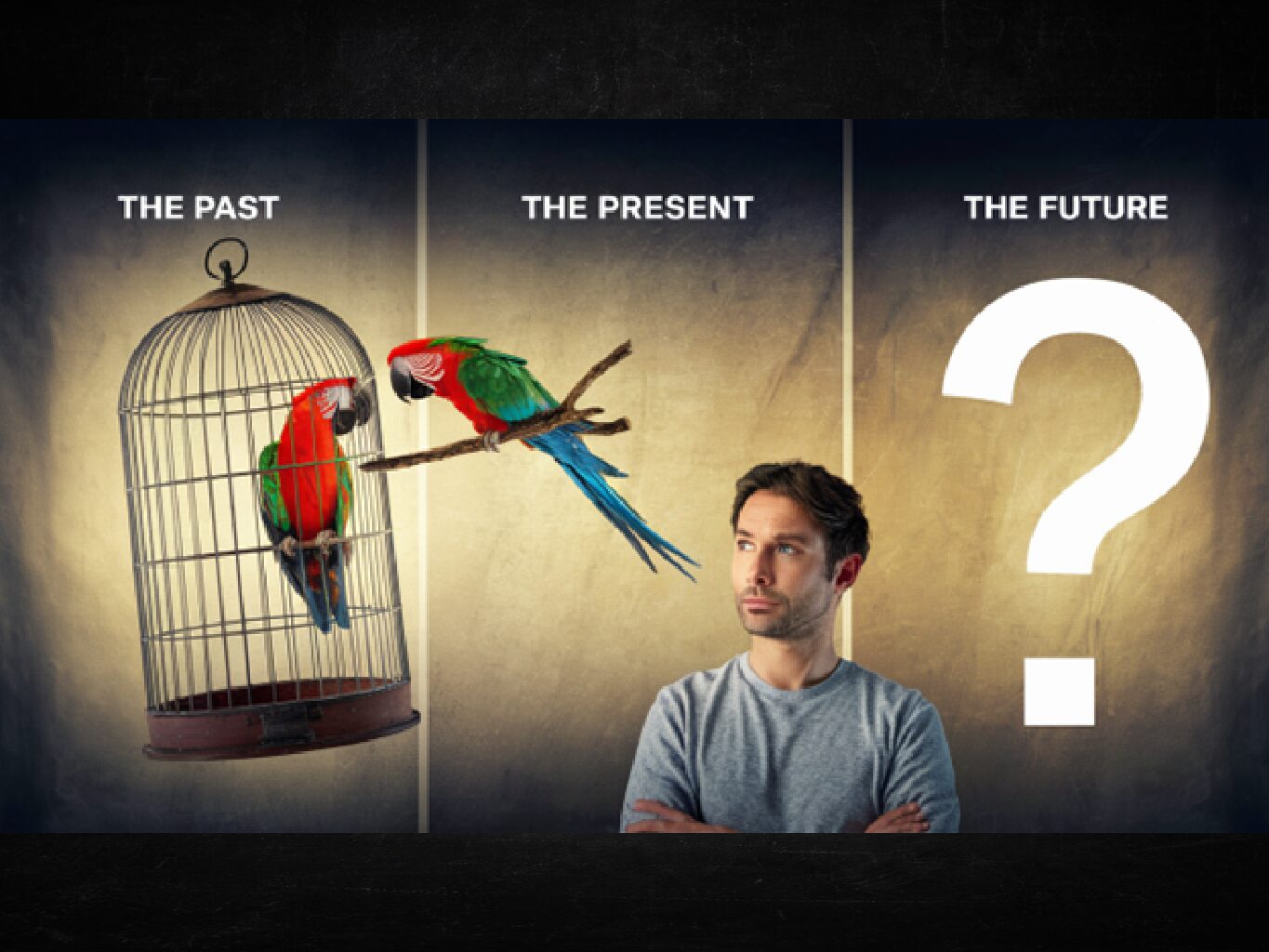
Truths are like colors: they depend on the interaction between the observer’s perception and external forces in the environment. Image generated using Leonardo.Ai.
By Mariana Meneses
Science has transformed our world unlike any other human endeavour.
The comforts and technologies we often take for granted – from electricity to antibiotics – would not exist without scientific inquiry. At the core of this world-changing force is the scientific method. But what exactly is the scientific method, and why has it proven so powerful compared to other forms of knowledge? Importantly, what are its limits?
The Logic Behind the Scientific Method
The scientific method is a systematic approach to understanding the universe through observation, experimentation, and falsifiable predictions. It relies on careful, methodical investigation and testing of hypotheses, as scientists explain natural phenomena through empirical data that can be repeatedly measured and verified.
One of the core principles of the scientific method is falsifiability. According to the philosopher Karl Popper (1902 – 1994), a scientific hypothesis or theory must make predictions that have the possibility of being shown false by experimentation or observation. Falsifiability allows for scientific hypotheses and theories to be tested and potentially disproven. Thus, a hypothesis that cannot be disproven cannot be proven true either.
This principle helps to safeguard scientific findings from confirmation bias, which is the tendency to search for, interpret, favour, and recall information in a way that confirms one’s preexisting beliefs.
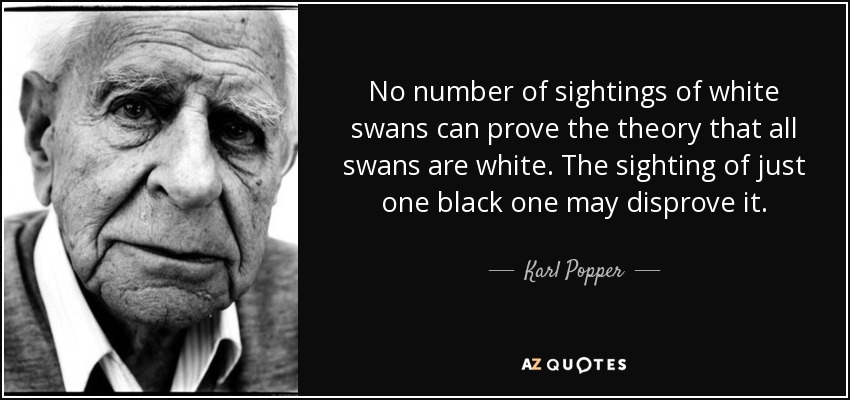
Karl Popper’s writings on falsifiability and the emphasis on disconfirming evidence are essential readings for any student seeking to understand the logic underpinning the scientific method. Image: AZQuotes.
The emphasis on empirical data and falsifiability gives the scientific method powerful explanatory and predictive power.
Falsifiability is seen as a fundamental requirement for a claim to be scientifically examined, serving as the criterion that distinguishes between what is deemed scientific and what is not. This allows for scientific knowledge to be constantly refined and improved as new evidence is discovered.
It’s important to note that falsifiability says nothing about an argument’s inherent validity or correctness, but rather it is a criterion for determining whether a claim can be considered scientific or not – this may come as a shock to those who’ve grown accustomed to the public discourse equating “scientific” and “truth”, but more on that in a moment!
By incremental hypothesis testing and refinement, the scientific method develops general theories that can account for known phenomena and accurately predict as-yet-unseen events. For example, John Dalton’s atomic theory paved the way for the development of the periodic table of elements, by Dmitri Mendeleev, which not only organized known elements but predicted the existence of undiscovered ones.
Sure enough, those elements were later found.
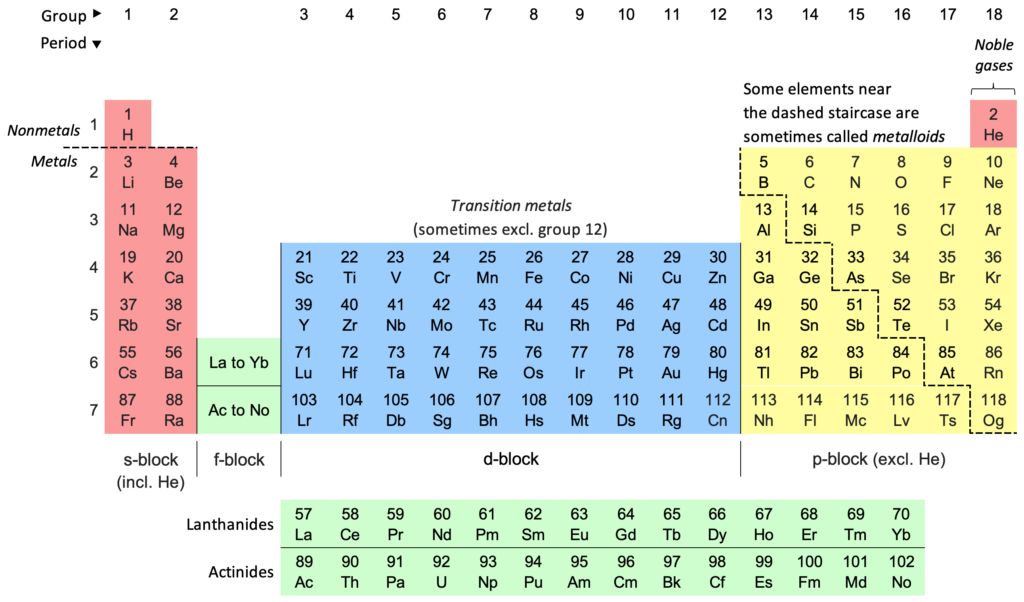
The periodic table evolved from early attempts to organize elements by atomic mass to the modern form based on atomic number, illuminating quantum mechanical structure, and predicting existence of new elements. Completion of the first 118 elements confirmed the table’s patterns, but questions remain about how far it extends and if all elements are optimally positioned. Image: Sandbh.
At its core, science is not seeking “absolute truths” but rather developing models and theories with the best available explanatory and predictive power given current data.
Scientific conclusions are always provisional, open to revision in light of new evidence. This intrinsic uncertainty is a feature, not a bug, because it drives continual progress and increasingly accurate understanding. The alternative – rigid adherence to existing ideas regardless of contradicting evidence – impedes the quest for greater knowledge.
Many philosophers have contributed significantly to our understanding of the foundations and logic of scientific knowledge.
Their ideas range from emphasizing the importance of empirical observation (Francis Bacon), to arguing that knowledge must be founded on direct observation and logical deduction (René Descartes), to the position that all beliefs must be subject to scrutiny and revision based on new evidence (Bertrand Russell). Others have highlighted the role of intuition in knowledge acquisition (Baruch Spinoza), and stressed the provisional nature of scientific theories and the importance of interdisciplinary dialogue between philosophy and science (Mario Bunge).
Carl Sagan and Leonard Mlodinow have also highlighted the importance of critical thinking and skepticism in evaluating scientific claims, as scientific knowledge is constantly evolving, and no theory is ever truly settled.
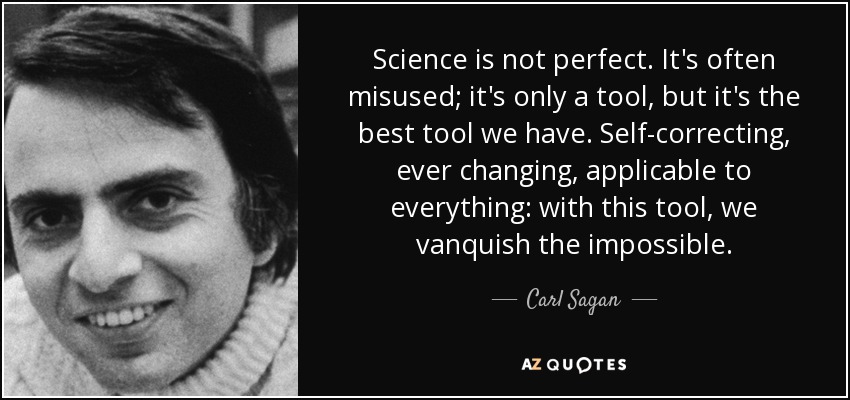
Carl Sagan’s perspective on science, emphasizing the wonder of the cosmos, the value of skepticism, and the possibilities of scientific discovery, has profoundly shaped public attitudes and inspired many to pursue careers in science. Image: AZQuotes.
Of course, the scientific method has limits.
There are phenomena not amenable to controlled testing or naturalistic explanations, and the complexities of human psychology can bias the interpretation of data. However, awareness of these limits prompts ongoing scrutiny, debate, and refinement of methods. Compared to other approaches to knowledge, the scientific method is widely held to be our most powerful tool for unraveling mysteries about the natural world through rational inquiry.
While the scientific method is a very useful prediction machine, other types of knowledge serve other types of purposes, in other types of contexts.
In “Against Method,” Paul Feyerabend argues that there is no fixed scientific method that leads to progress and truth.
Instead, he suggests that science should be open to various methods and perspectives, including those from outside the scientific community. Feyerabend criticizes the idea of a single scientific method because it limits creativity and discovery. He believes that progress in science comes from embracing diverse approaches, including ones that may seem irrational or unconventional. Feyerabend advocates for an anarchistic view of scientific exploration, where there are no rules dictating how scientific inquiry should proceed, allowing for more flexibility and innovation in the pursuit of knowledge.
Several critics have expressed the view that Feyerabend’s ideas in “Against Method” could potentially lead to a relativistic view of science, where any method or perspective is considered equally valid. Additionally, some contend that Feyerabend’s rejection of a unified scientific method overlooks the importance of rigor and consistency in scientific inquiry.
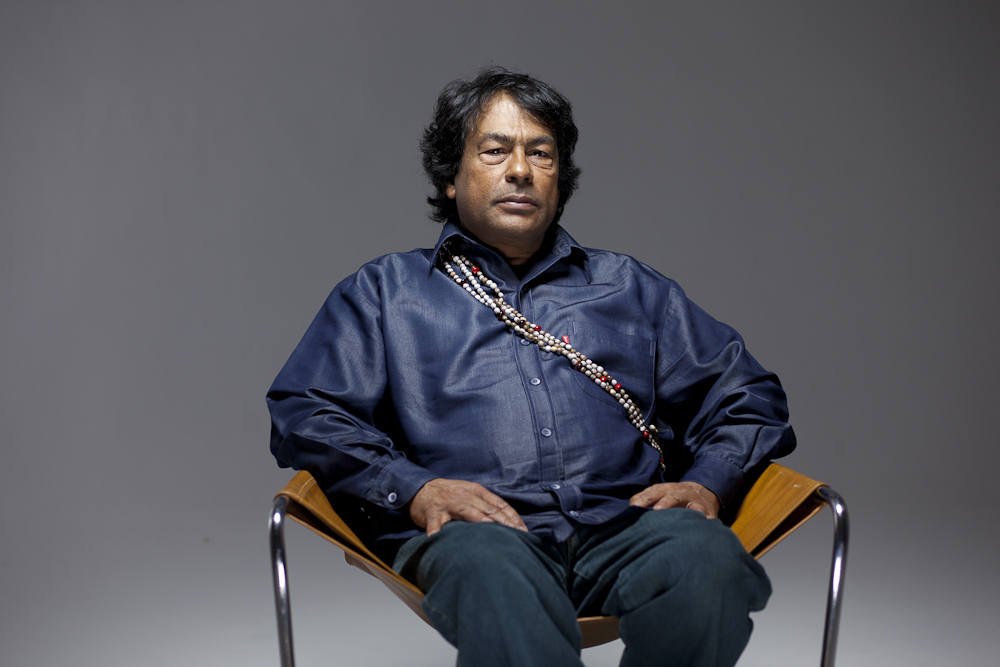
Ailton Krenak, born in 1953 in Brazil, is a prominent indigenous leader, environmentalist, philosopher, poet, and writer of the Krenak indigenous ethnicity. He is also an honorary professor at the Federal University of Juiz de Fora (UFJF) and is considered one of the greatest leaders of the Brazilian indigenous movement, with international recognition. Image: Ailton Krenak.
Another important source of criticism comes from an indigenous way of thinking.
Ailton Krenak, a prominent Brazilian indigenous leader and philosopher, advocates for the recognition and preservation of traditional knowledge of nature as a crucial alternative to Western scientific paradigms. He emphasizes the value of indigenous wisdom, transmitted through oral traditions over generations, in fostering sustainable living and a harmonious relationship with nature. Krenak critiques the prevailing worldview that separates humans from the earth, leading to environmental degradation and a disregard for the diversity of life.
He argues for a return to ancestral wisdom, suggesting that by reconnecting with the insights of our ancestors and indigenous cultures, we can better navigate the challenges of the present and future while fostering a more respectful relationship with the natural world.
How about an example of such limitations?
David Chalmers, a leading figure in the philosophy of mind, highlights the inherent limitations of the scientific method in comprehensively explaining consciousness – we may need to expand our consciousness of consciousness.
While recognizing the invaluable role of empirical research in uncovering empirical facts about the brain and consciousness, Chalmers contends that the traditional scientific approach may fall short in addressing profound philosophical questions, such as the nature of subjective experience. Central to his perspective is the acknowledgment of the “hard problem of consciousness,” emphasizing the challenge of bridging the explanatory gap between physical processes and the subjective qualities of consciousness.
Chalmers suggests that while empirical investigation is essential, it alone may not suffice to fully grasp the complexities of consciousness. Consequently, he advocates for an interdisciplinary approach, to provide a more comprehensive understanding of consciousness beyond the scope of traditional scientific methodologies.
Others, like Nobel laureate Sir Roger Penrose, have argued that “whatever consciousness is, it must be beyond computable physics.” Since observation requires measurement, which is the basis for computation, to this way of thinking we will not find empirical evidence of consciousness. While physical processes are measurable, observable, and computable, these arguments place consciousness beyond the scope of the scientific method.
And yet if there’s one thing that we know for certain, surely, it’s that consciousness exists. The question is whether consciousness can be replicated, for example in the quest to develop an artificial general intelligence capable of understanding meaning and abstractions.
But can we find absolute truths?
Well, that is a philosophical question, and we may not be fully able to answer it. But scientific evidence can give us a hint. As discussed in another TQR article, “our perception depends on our relative positions as observers,” which means that when a tree falls and no one is there to listen, it cannot make a noise. In other words, the ‘truths’ we may unveil will always be valid inside a defined – albeit often unknown – radius (i.e., inside a specific context). Even the laws of physics may not apply for different, yet-unknown-to-us universes.

In a dystopic future, humanoid robots – being victims of misinformation – riot, fearful that harmful updates will be imposed on them. Image generated using Ideogram AI.
We are constantly bombarded with an overwhelming amount of data in today’s information age.
It can be challenging to discern accurate and reliable information amid the noise. Complex issues like climate change, vaccine safety, and political ideologies are particularly susceptible to misinformation. Navigating this sea of information requires a critical eye and understanding of rigorous testing and multiple forms of evidence.
By learning and examining the strengths and limitations of the scientific method and other knowledge sources, we can make informed decisions and contribute to an informed public discourse.
Did you like this content? Read one of these handpicked TQR articles:
- We Are All Citizen Scientists
- The Rising Power of Citizen Science: Enthusiasts Become Agents of Change
- Dark Energy Explorers: A Citizen Science Project Looks Over 9 Billion Years Into the Past
- The Cool Neighbors of Our Sun: Citizen Scientists Search for Brown Dwarfs
- Building Future Scientists: Girls in Quantum and the Quantum Qid Foundation
- The Extraordinary Contributions of Citizen Scientists to Scientific Creativity


